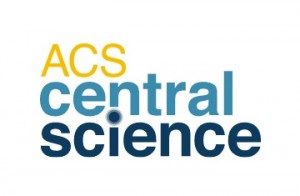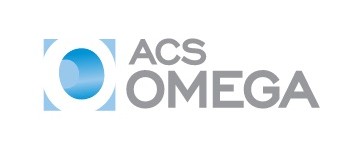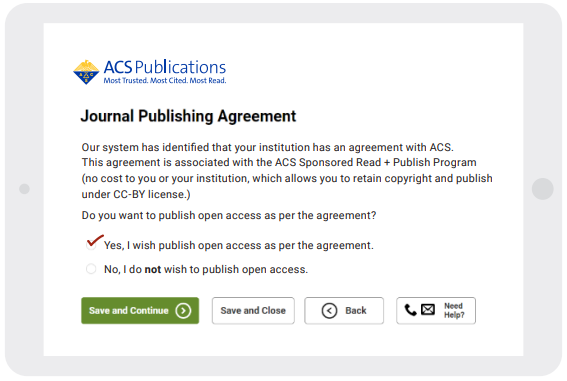Max Planck Society, Max Planck Digital Libary
Germany
Which ACS journals are included in this agreement?
The table below shows the ACS journals where your article publishing charge (APC) should be covered by your institution. Unless otherwise stated, this agreement covers 100% of the APC.
| Journal / Collection | Included in Agreement? | |
|---|---|---|
 | ACS Central Science | Diamond open access: Free to publish and read |
 | ACS Omega | |
 | ACS Au family (including JACS Au) | |
     | Artificial PhotosynthesisChem & Bio EngineeringChemical & Biomedical ImagingEnvironment & HealthPrecision Chemistry | Waivers available: see individual journals for information |
| ACS hybrid / transformative journals | ||
Publish open access at no cost
If you are associated with any of the institutional accounts below and are the submitting corresponding author, you may have the opportunity to publish your research in any ACS Hybrid or Au journal under a CC BY open access license with your institution’s support.
Access to all ACS journals
In addition to open access publication benefits, participants in this special agreement will have full-text access to all current ACS Publications journal content.
Scroll down to find out how to publish open access at no cost under this agreement.
Participating institutions
| Institution Name | Institution Name | Institution Name |
|---|---|---|
| Bibliotheca Hertziana - Max-Planck-Institut für Kunstgeschichte / Bibliotheca Hertziana - Max Planck Institute for Art History | Max-Planck-Institut für Entwicklungsbiologie / Max Planck Institute for Developmental Biology | Max-Planck-Institut für Mikrostrukturphysik / Max Planck Institute of Microstructure Physics |
| Friedrich-Miescher-Laboratorium für biologische Arbeitsgruppen in der Max-Planck-Gesellschaft / Friedrich Miescher Laboratory of the Max Planck Society | Max-Planck-Institut für ethnologische Forschung / Max Planck Institute for Social Anthropology | Max-Planck-Institut für molekulare Biomedizin / Max Planck Institute of Molecular Biomedicine |
| Fritz-Haber-Institut der Max-Planck-Gesellschaft / Fritz Haber Institute of the Max Planck Society | Max-Planck-Institut für europäische Rechtsgeschichte / Max Planck Institute for European Legal History | Max-Planck-Institut für molekulare Genetik / Max Planck Institute for Molecular Genetics |
| Generalverwaltung der Max-Planck-Gesellschaft / Administrative Headquarters of the Max Planck Society | Max-Planck-Institut für evolutionäre Anthropologie / Max Planck Institute for Evolutionary Anthropology | Max-Planck-Institut für molekulare Pflanzenphysiologie / Max Planck Institute of Molecular Plant Physiology |
| Kunsthistorisches Institut in Florenz - Max-Planck-Institut / Art History Institute in Florence - Max-Planck-Institute | Max-Planck-Institut für Evolutionsbiologie / Max Planck Institute for Evolutionary Biology | Max-Planck-Institut für molekulare Physiologie / Max Planck Institute of Molecular Physiology |
| Max-Planck-Digital-Library | Max-Planck-Institut für experimentelle Medizin / Max Planck Institute for Experimental Medicine | Max-Planck-Institut für molekulare Zellbiologie und Genetik / Max Planck Institute of Molecular Cell Biology and Genetics |
| Max-Planck-Institut für Astronomie / Max Planck Institute for Astronomy | Max-Planck-Institut für extraterrestrische Physik / Max Planck Institute for Extraterrestrial Physics | Max-Planck-Institut fur Neurobiologie des Verhaltens - caesar / Max Planck Institute for Neurobiology of Behavior – caesar |
| Max-Planck-Institut für Astrophysik / Max Planck Institute for Astrophysics | Max-Planck-Institut für Festkörperforschung / Max Planck Institute for Solid State Research | Max-Planck-Institut für Neurobiologie / Max Planck Institute of Neurobiology |
| Max-Planck-Institut für ausländisches öffentliches Recht und Völkerrecht / Max Planck Institute for Comparative Public Law and International Law | Max-Planck-Institut für Gesellschaftsforschung / Max Planck Institute for the Study of Societies | Max-Planck-Institut für Ornithologie / Max Planck Institute for Ornithology |
| Max-Planck-Institut für ausländisches und internationales Privatrecht / Max Planck Institute for Foreign Private and Private International Law | Max-Planck-Institut für Gravitationsphysik (Albert-Einstein-Institut) / Max Planck Institute for Gravitational Physics (Albert Einstein Institute) | Max-Planck-Institut für Pflanzenzüchtungsforschung / Max Planck Institute for Plant Breeding Research |
| Max-Planck-Institut für ausländisches und internationales Strafrecht / Max Planck Institute for Foreign and International Criminal Law | Max-Planck-Institut für Herz- und Lungenforschung (W.G. Kerckhoff-Institut) / Max Planck Institute for Heart and Lung Research (W. G. Kerckhoff Institute) | Max-Planck-Institut für Physik (Werner-Heisenberg-Institut) / Max Planck Institute of Physics (Werner Heisenberg Institute) |
| Max-Planck-Institut für Bildungsforschung / Max Planck Institute for Human Development | Max-Planck-Institut für Hirnforschung & Forschungsstelle Neurogenetik / Max Planck Institute for Brain Research | Max-Planck-Institut für Physik komplexer Systeme / Max Planck Institute for the Physics of Complex Systems |
| Max-Planck-Institut für Biochemie / Max Planck Institute of Biochemistry | Max-Planck-Institut für Immunbiologie und Epigenetik / Max Planck Institute of Immunobiology and Epigenetics | Max-Planck-Institut für Plasmaphysik / Max Planck Institute of Plasma Physics |
| Max-Planck-Institut für Biogeochemie / Max Planck Institute for Biogeochemistry | Max-Planck-Institut für Infektionsbiologie / Max Planck Institute for Infection Biology | Max-Planck-Institut für Polymerforschung / Max Planck Institute for Polymer Research |
| Max-Planck-Institut für Biologie des Alterns / Max Planck Institute for the Biology of Ageing | Max-Planck-Institut für Informatik / Max Planck Institute for Computer Science | Max-Planck-Institut für Psychiatrie (Deutsche Forschungsanstalt für Psychiatrie) / Max Planck Institute of Psychiatry (German Research Institute for Psychiatry) |
| Max-Planck-Institut für biologische Kybernetik / Max Planck Institute for Biological Cybernetics | Max-Planck-Institut für Innovation und Max-Planck-Institut für Steuerrecht / Max Planck Institute for Innovation and Max Planck Institute for Tax Law | Max-Planck-Institut für Psycholinguistik / Max Planck Institute for Psycholinguistics |
| Max-Planck-Institut für Biophysik / Max Planck Institute of Biophysics | Max-Planck-Institut für Intelligente Systeme / Max Planck Institute for Intelligent Systems | Max-Planck-Institut für Quantenoptik / Max Planck Institute of Quantum Optics |
| Max-Planck-Institut für biophysikalische Chemie (Karl-Friedrich-Bonhoeffer-Institut) / Max Planck Institute for Biophysical Chemistry (Karl Friedrich Bonhoeffer Institute) | Max-Planck-Institut für Kernphysik / Max Planck Institute for Nuclear Physics | Max-Planck-Institut für Radioastronomie / Max Planck Institute for Radio Astronomy |
| Max-Planck-Institut für Chemie (Otto-Hahn-Institut) / Max Planck Institute for Chemistry (Otto Hahn Institute) | Max-Planck-Institut für Kognitions- und Neurowissenschaften / Max Planck Institute for Human Cognitive and Brain Sciences | Max-Planck-Institut für Softwaresysteme / Max Planck Institute for Software Systems |
| Max-Planck-Institut für chemische Energiekonversion / Max Planck Institute for Chemical Energy Conversion | Max-Planck-Institut für Kohlenforschung / Max Planck Institute of Coal Research | Max-Planck-Institut für Sonnensystemforschung / Max Planck Institute for Solar System Research |
| Max-Planck-Institut für chemische Ökologie / Max Planck Institute for Chemical Ecology | Max-Planck-Institut für Kolloid- und Grenzflächenforschung / Max Planck Institute of Colloids and Interfaces | Max-Planck-Institut für Sozialrecht und Sozialpolitik / Max Planck Institute for Social Law and Social Policy |
| Max-Planck-Institut für Chemische Physik fester Stoffe / Max Planck Institute for Chemical Physics of Solids | Max-Planck-Institut für marine Mikrobiologie / Max Planck Institute for Marine Microbiology | Max-Planck-Institut für Stoffwechselforschung / Max Planck Institute for Metabolic Research |
| Max-Planck-Institut für demografische Forschung / Max Planck Institute for Demographic Research | Max-Planck-Institut für Mathematik / Max Planck Institute for Mathematics | Max-Planck-Institut für Struktur und Dynamik der Materie / Max Planck Institute for the Structure and Dynamics of Matter |
| Max-Planck-Institut für Dynamik komplexer technischer Systeme / Max Planck Institute for Dynamics of Complex Technical Systems | Max-Planck-Institut für Mathematik in den Naturwissenschaften / Max Planck Institute for Mathematics in the Sciences | Max-Planck-Institut für terrestrische Mikrobiologie / Max Planck Institute for Terrestrial Microbiology |
| Max-Planck-Institut für Dynamik und Selbstorganisation / Max Planck Institute for Dynamics and Self-Organization | Max-Planck-Institut für medizinische Forschung / Max Planck Institute for Medical Research | Max-Planck-Institut für Wissenschaftsgeschichte / Max Planck Institute for the History of Science |
| Max-Planck-Institut für Eisenforschung / Max Planck Institute for Iron Research | Max-Planck-Institut für Menschheitsgeschichte / Max Planck Institute for the Science of Human History | Max-Planck-Institut zur Erforschung multireligiöser und multiethnischer Gesellschaften / Max Planck Institute for the Study of Religious and Ethnic Diversity |
| Max-Planck-Institut für empirische Ästhetik / Max Planck Institute for Empirical Aesthetics | Max-Planck-Institut für Meteorologie / Max Planck Institute for Meteorology | Max-Planck-Institut zur Erforschung von Gemeinschaftsgütern / Max Planck Institute for Research on Collective Goods |
More Information – Press Release
I’m a prospective author, how do I publish open access?
Step 1
Submit your article to the ACS journal of your choice, making sure you are the submitting corresponding author.
Step 2
Ensure your institution affiliation is correct on your profile in the ACS Paragon Plus submission system.
Step 3
Check that your affiliation is stated in the body of the manuscript as the corresponding author’s affiliation.
Step 4
When your manuscript has been accepted for publication, you will be automatically prompted with the option to publish open access under your institution’s agreement.
Step 5
Confirm that “Yes, I wish to publish open access as per the agreement” is checked, and complete the Journal Publishing Agreement.

Step 6
Your institution will be alerted to your open access funding request. If the request is approved, your article will be made immediately available as open access upon publication under a Creative Commons CC BY 4.0 license. There are no charges to pay and no further action required by either you or your institution.
Video demonstration
This demo video shows you how to navigate the Journal Publishing Agreement assistant and publish your research open access under your institutional open access agreement:
Automatic article deposit
Authors who elect to publish open access will automatically have their final published article sent for deposit in PubMed Central. Please note all contents accepted for US PubMed Central are automatically mirrored on Europe PMC — nothing more is required on your part. Authors publishing open access under this agreement are also free to deposit the version of record in their institutional and/or research funder’s designated open access repository.